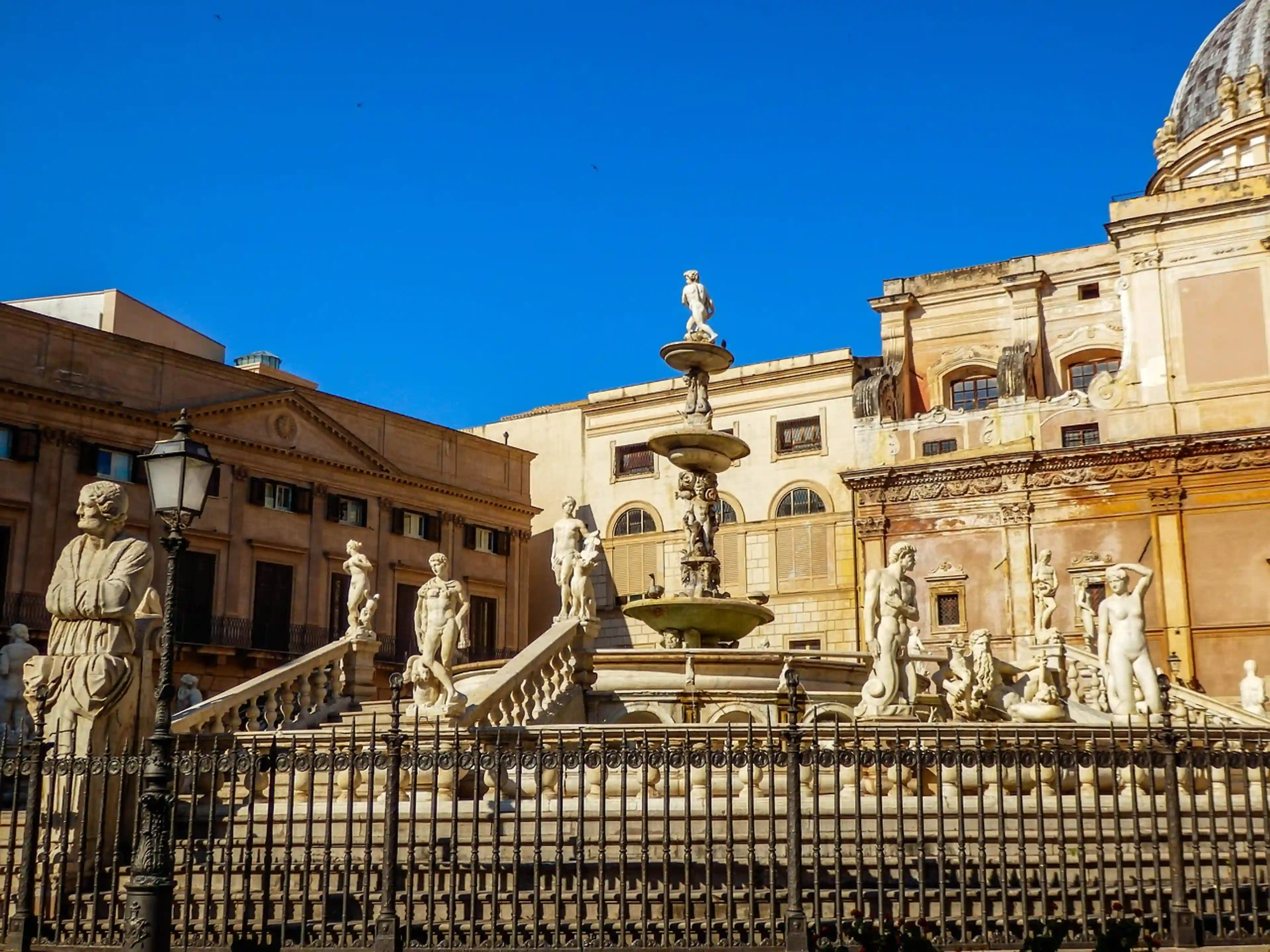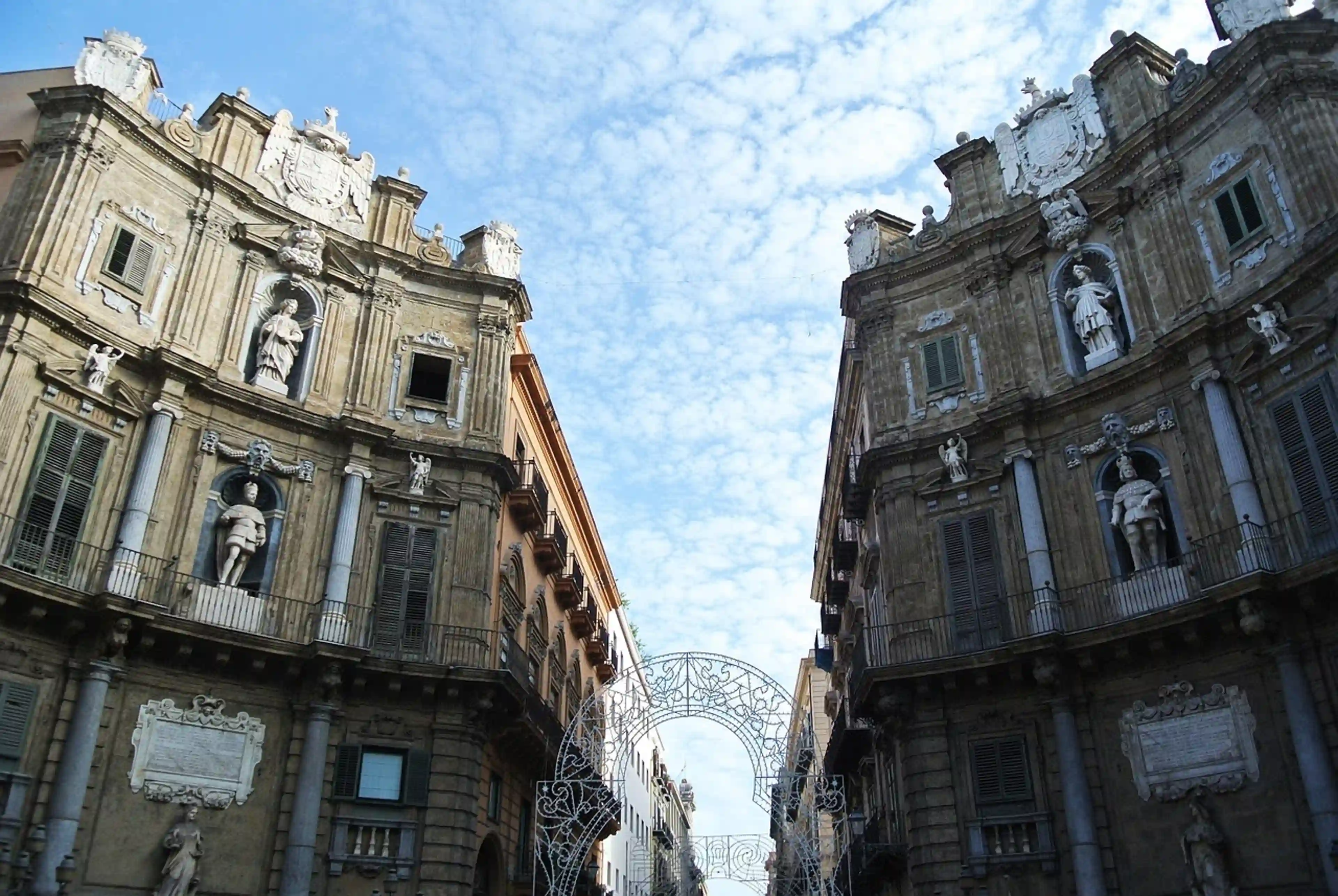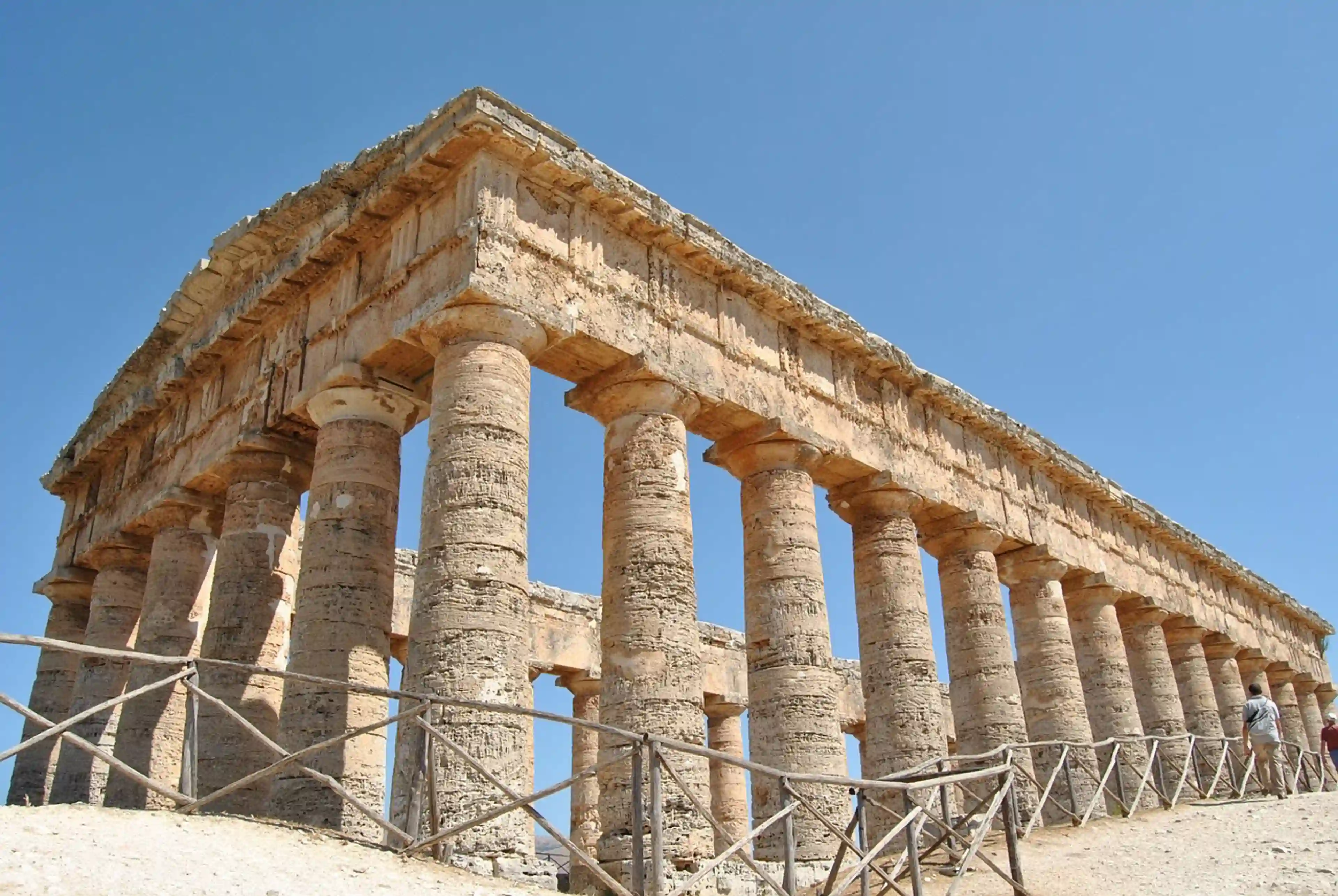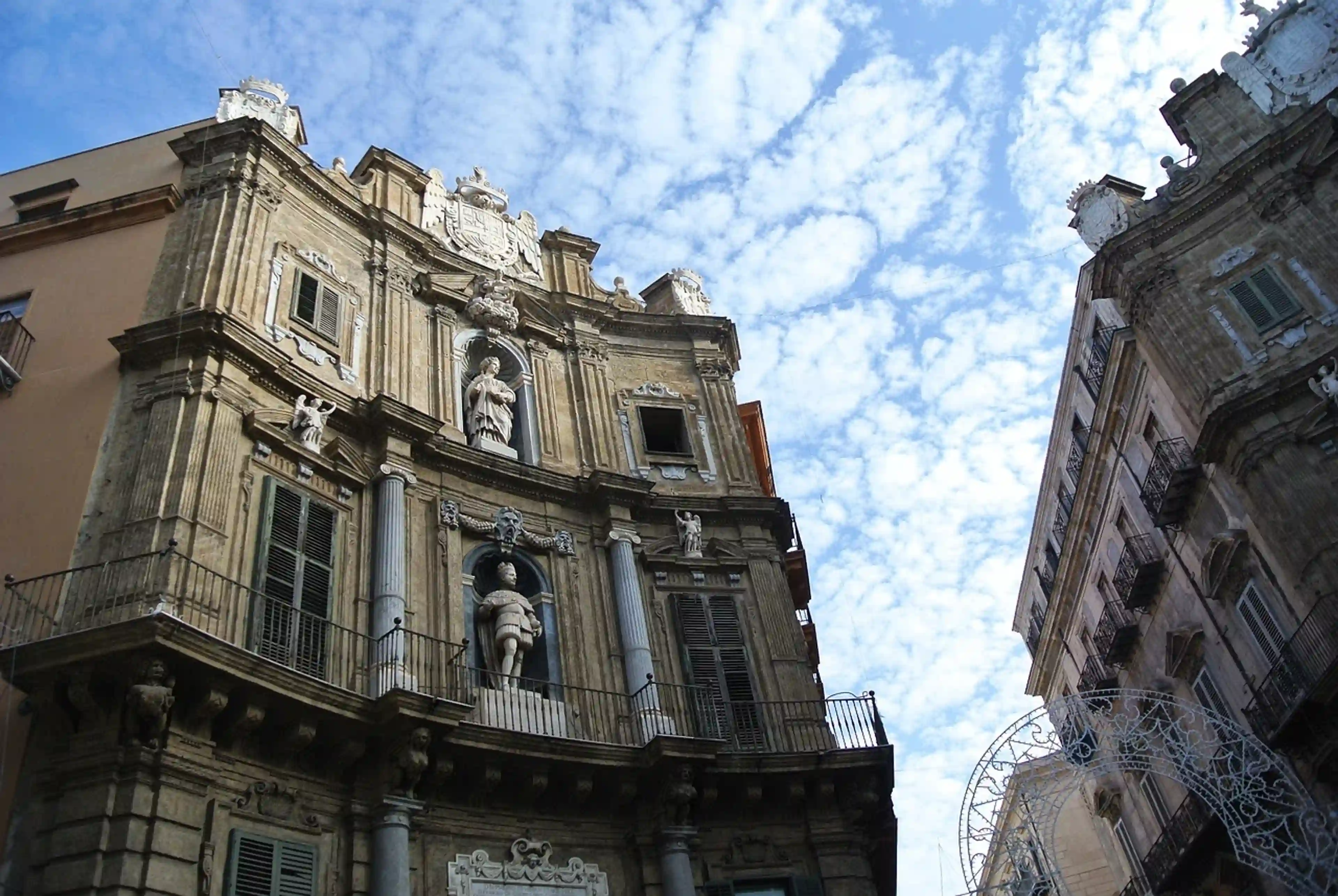Palermo
General presentation
Top 50
History, culture & traditions
Travel advice
Wikipedia
Viator activities
Tiqets activities
General presentation
Overall presentation
The capital of Sicily, this city with a rich historical and cultural past bears the traces of multiple civilizations that have shaped it over the centuries. Phoenician, Greek, Roman, Arab, and Norman influences harmoniously reflect in its exceptional architecture, refined gastronomy, and vibrant traditions. The historic center is among the largest in Europe and is home to architectural jewels listed as UNESCO World Heritage sites, including the Palatine Chapel and the cathedral. Lively markets like Ballarò and Vucciria offer an authentic immersion into the local way of life, where emblematic specialties such as arancini and cannoli can be savored.
Geographic situation
Strategically positioned in the northwest of Sicily, the city gracefully extends along its eponymous bay, facing the Tyrrhenian Sea. It is nestled in the heart of the Conca d'Oro, a fertile plain famous for its citrus orchards that perfume the surrounding air. Mount Pellegrino majestically dominates the area, offering breathtaking views of the urban and maritime landscapes that merge in perfect harmony.
Atmosphere and character
The vibrant and cosmopolitan atmosphere of the city reveals a clever blend of ancient traditions and contemporary dynamism. The narrow alleyways and lively squares testify to an intense local life, punctuated by colorful festivals, bustling markets, and a thriving artistic scene. This unique cultural diversity imparts a warm yet mysterious ambiance, inviting discovery of its multiple facets.
Climate
The Mediterranean climate offers pleasant conditions throughout the year. Winters are mild and humid, with temperatures ranging from 8°C to 15°C, while summers deploy their dry heat with maxima reaching up to 35°C. The interseasons of spring and autumn stand out for their mildness, generally offering temperatures between 20°C and 25°C, ideal for urban exploration.
Best season to visit
The favored periods extend in spring (April-May) and autumn (September-October), when the mild temperatures allow for complete enjoyment of the historical and cultural riches. These seasons offer the additional advantage of a more moderate tourist influx, favoring a serene discovery of emblematic sites and an authentic participation in local events.
Access
The Falcone-Borsellino International Airport, located 32 km to the west, provides regular connections with major Italian and European destinations. Several transport options link the airport to the city center:
- Train: 50 minutes for €6
- Bus: trip for €7-8
- Taxi: 40 to 50 minutes for €35-45
The central station, located at Piazza Giulio Cesare, constitutes an important rail hub with connections to major Sicilian and Italian cities.
Internal transport
The compact historic center is ideally explored on foot. For longer distances, the AMAT public transport network offers buses and four tram lines:
- Single ticket: €1.40 (valid for 90 minutes)
- Daily ticket: €3.50
- Points of sale: buses, tram stations, kiosks, and tobacco shops
Bicycle rental is an interesting alternative, although some areas have elevation changes to consider when planning routes.
Top 50
Wikipedia
Viator activities
Tiqets activities



